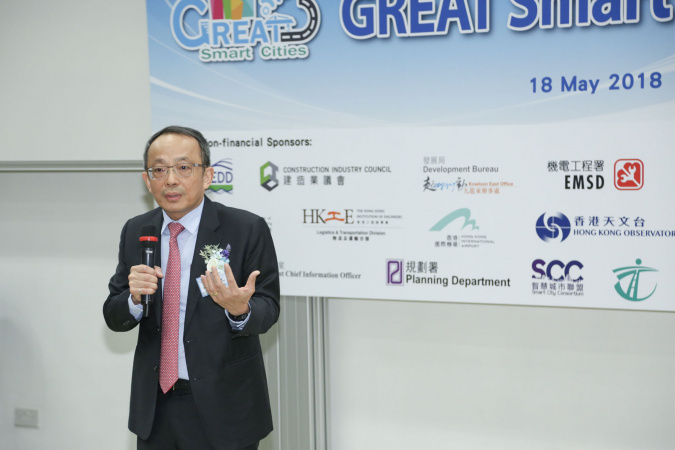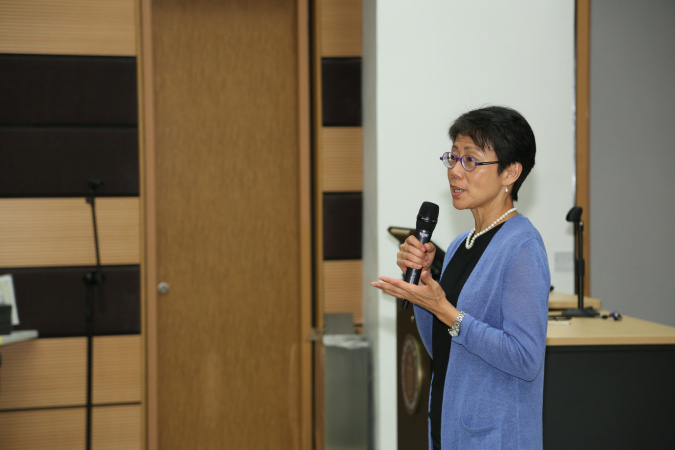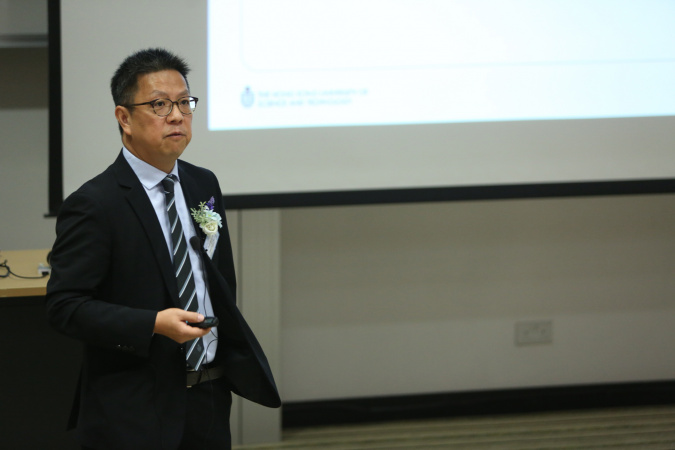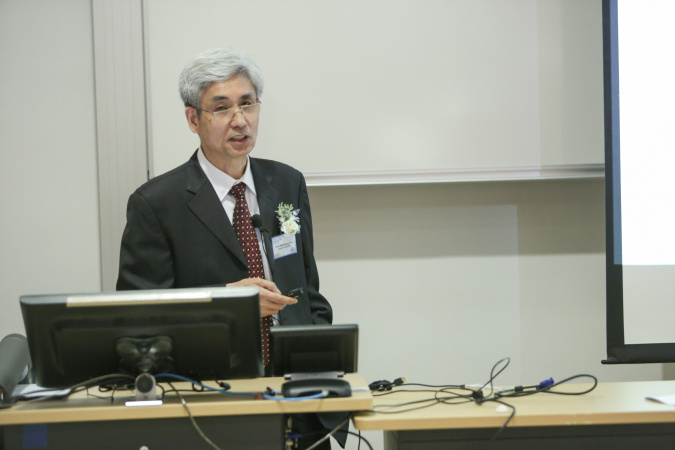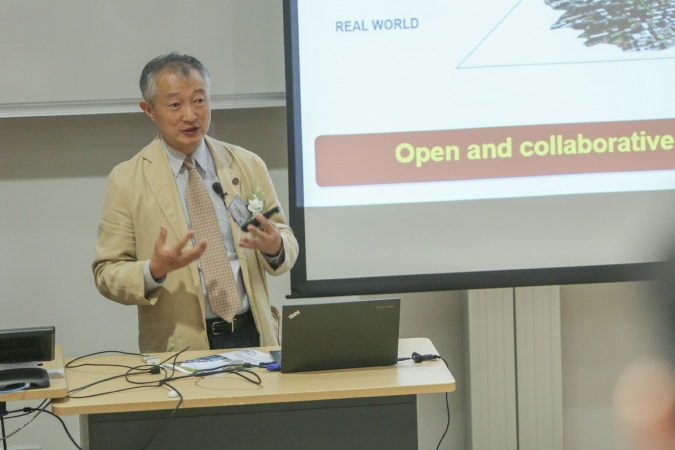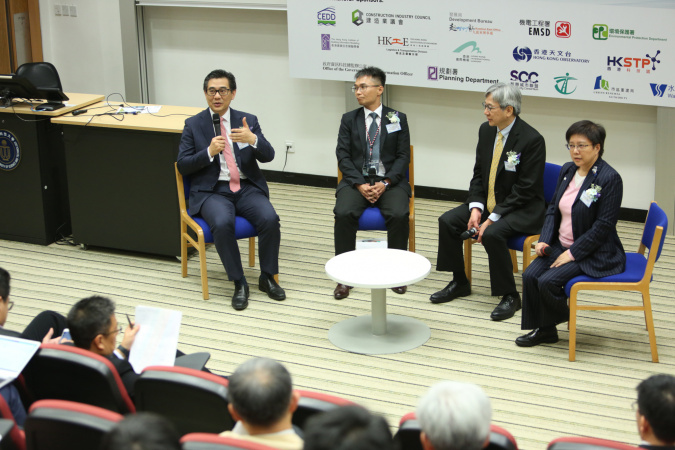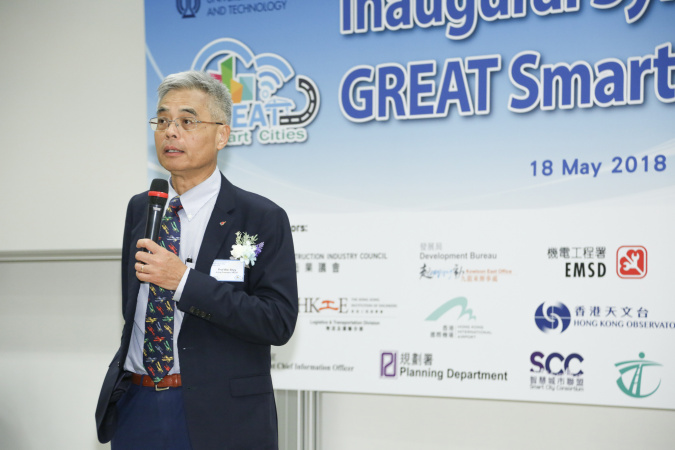Leading Experts from China, Hong Kong and the World Share Insights on Smart Cities at HKUST’s First Symposium
The GREAT Smart Cities Center of the Hong Kong University of Science and Technology (HKUST) hosted its Inaugural Symposium of GREAT Smart Cities today (Friday), providing a distinguished platform for experts from Mainland China, Hong Kong and the rest of the world to share information and ideas on the development of smart cities.
GREAT is an acronym for Green, Resilient, Empowering, Adaptable, and Transformative.
The opening ceremony was officiated by Prof Wei SHYY, Acting President, HKUST; Prof Tim CHENG, Dean of Engineering, HKUST; and Prof Christine LOH, former Under Secretary for the Environment of HKSAR Government, and Chief Development Strategist of the Division of Environment and Sustainability, HKUST. Prof Hong K LO, Director of GREAT Smart Cities Center, introduced the Center to the audience.
Prof Hong K Lo emphasized that no single entity could single-handedly create smart cities, and hence the importance of establishing a platform among academia, industry, and government, to achieve inter-disciplinary collaboration, which is also the main goal of the Center.
Prof Christine Loh said, “HKUST has a lot of distinguished capabilities in areas such as slope management, water management, and air quality control, which have achieved national importance. We can contribute our expertise to the Mainland and the world, both in terms of project management and in policy making. And our Business School can help bring all of these together in terms of financing.”
Prof Renzhong GUO, Member of Chinese Academy of Engineering, and Vice-President of both China Land Science Society and Chinese Society for Urban Studies, made the case of using Virtual Geographic Environment (VGE) as a big data platform for smart city development and shared the experience of Shenzhen.
Prof Dongping FANG, Chair of School of Civil Engineering and Executive Director of Institute for Future Cities and Infrastructures, Tsinghua University, focused on how to enhance urban resilience in the face of natural and man-made disasters. He argued that a smart city should be viewed as a system of systems comprising physical, social and cyber infrastructures, and proposed the development of a city simulator integrating various disciplines for modeling, analyzing and visualizing urban resilience.
They were joined by academics and professionals from Japan, Korea, Singapore and the US, providing perspectives on the development of smart cities in the region, and relevant officials from the Hong Kong Government on Hong Kong’s experience. The Symposium has enriched and broadened the perspectives of how Hong Kong can and should move forward to become a greater and smarter city.
About The Hong Kong University of Science and Technology
The Hong Kong University of Science and Technology (HKUST) (www.ust.hk) is a world-class research university that focuses on science, technology and business as well as humanities and social science. HKUST offers an international campus, and a holistic and interdisciplinary pedagogy to nurture well-rounded graduates with global vision, a strong entrepreneurial spirit and innovative thinking. HKUST attained the highest proportion of internationally excellent research work in the Research Assessment Exercise 2014 of Hong Kong’s University Grants Committee, and is the world’s second in the latest QS’ Top 50 under 50 ranking. Its graduates were ranked 12th worldwide and top in Greater China in Global Employability University Survey 2017.
